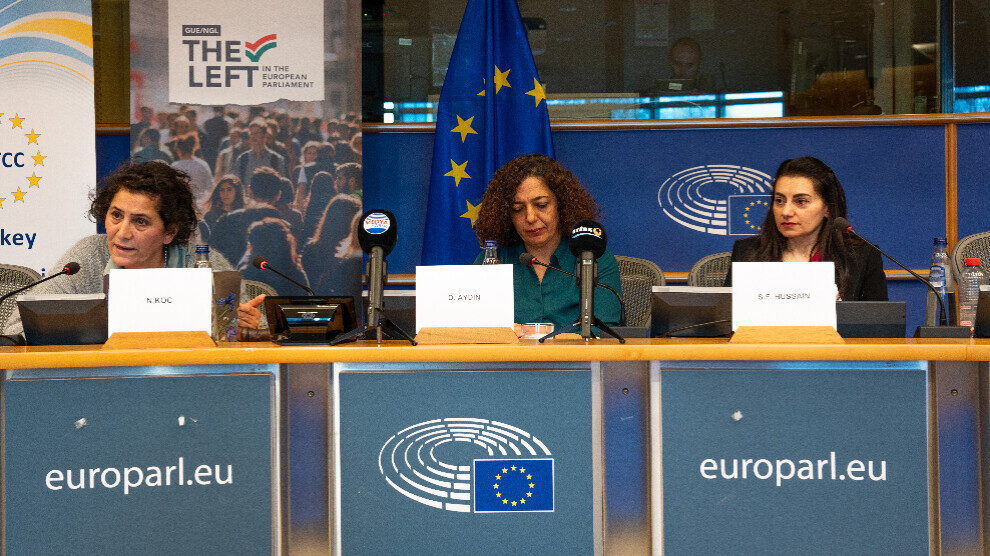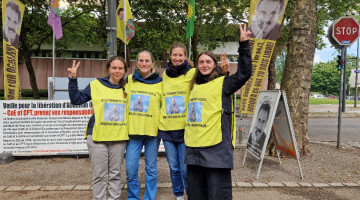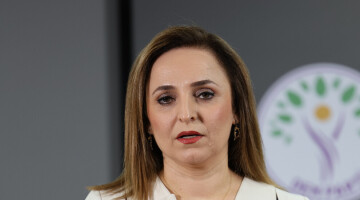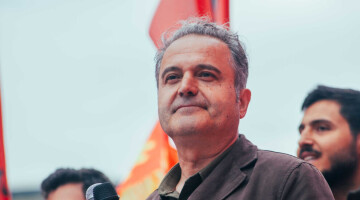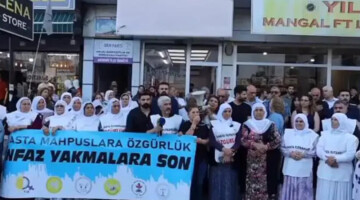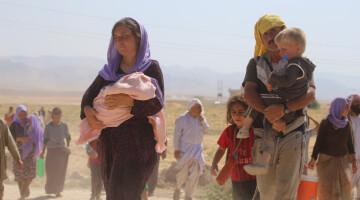The 19th EUTCC conference titled "European Union, Turkey, the Middle East, and the Kurds," held at the European Parliament in Brussels, Belgium, concluded on its second day.
The fifth and final panel of the conference, titled "Promoting Democracy and Building the Future," was moderated by Delal Aydın from the University of Geneva.
Hisên: Kurdish women's freedom struggle has a global character
The first speaker, Şîlan Fuad Hisên from the Institute for Domestic Violence, Religion, and Migration, stated that women want to determine their own future. She emphasized that the Kurdish Women's Freedom Struggle has merged with the feminist movement and has gained a global dimension. Thanks to the women's movement, the world's attention has been drawn to Rojava.
Şîlan Fuad Hisên said: "Women in Rojava have opposed the patriarchal mentality. According to the system they established, from the smallest group to the largest assembly, there must be a co-chair system with one woman and one man. This ensures that women play a real role. The women's movement emerged in Diyarbakır prisons, in Rojava, and in guerrilla areas. They stood against the mass arrests of HDP members and opposed the political punishment of feminists. Kurdish municipalities implemented feminist policies and sustained the co-chair system."
Dersim Dağdeviren read the final statement of the conference, which emphasized the increasing wars and political uncertainties around the world. It also highlighted the significant steps taken toward resolving the Kurdish issue in Turkey.
The statement said: "The historic call for peace and a democratic society made by Kurdish political leader Abdullah Öcalan on February 27, 2025, presents a unique opportunity to untie the knot not only for Turkey but for the entire region. The Kurdistan Workers' Party (PKK) responded swiftly to this call by unilaterally declaring a ceasefire. What must be done now is to establish the necessary legal and political foundations to turn this process into a lasting peace. Including Öcalan in the peace process is crucial for its success. His release, after more than 25 years in prison, would not only ensure the protection of his fundamental rights but also demonstrate a commitment to addressing the needs and rights of the Kurdish people."
The statement listed the following demands:
"An end to Turkey’s attacks on Northern Syria and the Kurdistan Region of Iraq, which constitute violations of international law,
The termination of the practice of appointing government trustees (kayyum) in place of elected officials,
Immediate political and legal measures to advance the peace process,
The release of Abdullah Öcalan, as his freedom, is essential for fulfilling his role in the process."
The statement also called on the European Union and its institutions, particularly the Council of Europe, to take the following steps:
"Recognize and strengthen the Autonomous Administration of North and East Syria as an essential democratic element of a united and pluralistic Syria,
Ensure the immediate implementation of the European Court of Human Rights rulings on Abdullah Öcalan’s case,
Activate all mechanisms to support a political resolution to the Kurdish issue and the democratization of Turkey and the Middle East,
Remove the Kurdistan Workers' Party (PKK) from the list of terrorist organizations as a positive step toward fostering the ongoing peace process."

